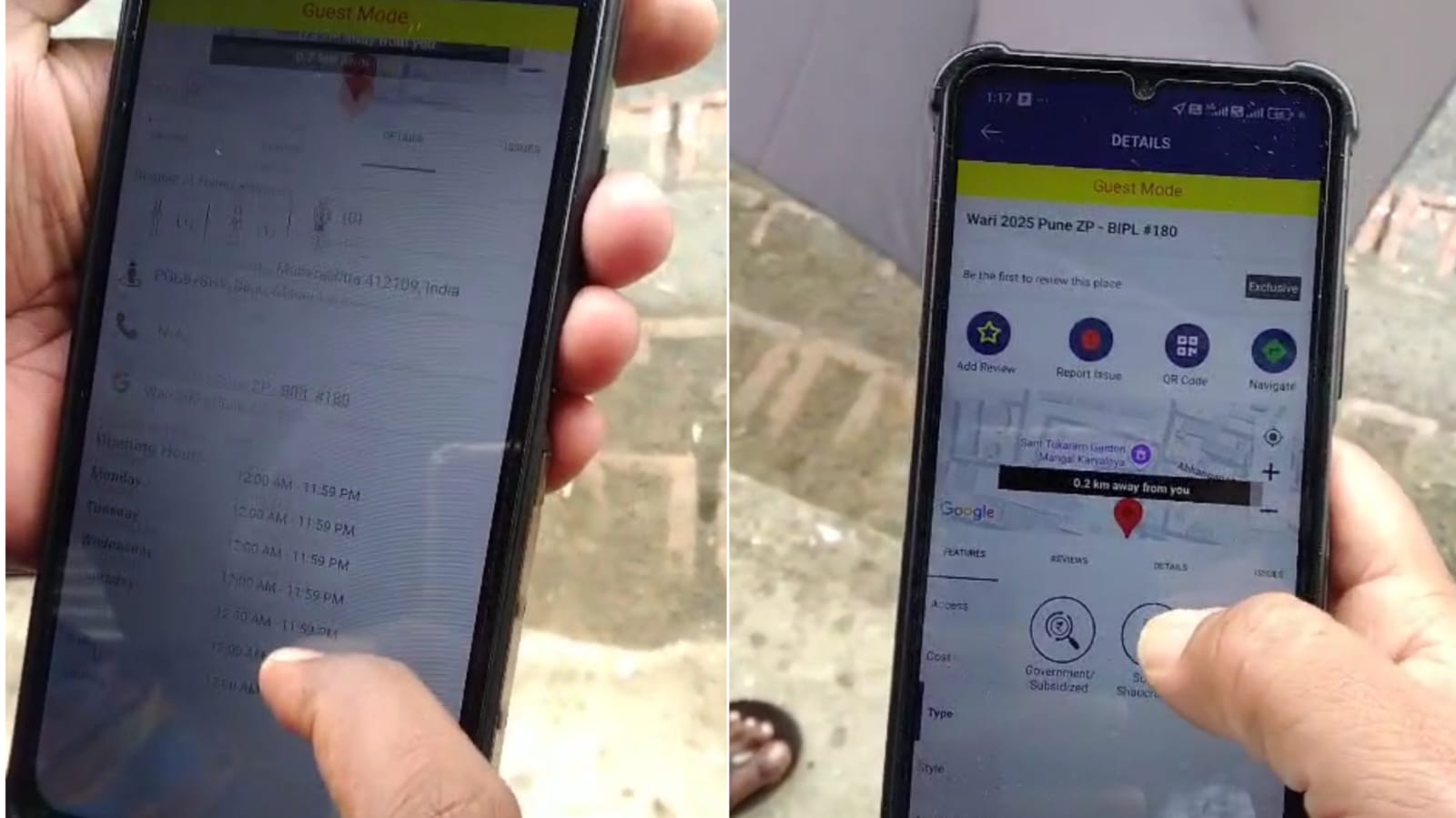Pune has taken a bold step in civic innovation with the launch of Toiletseva, a dedicated mobile app designed to manage mobile sanitation units along the Ashadhi Wari Palkhi routes. The initiative, aimed at enhancing hygiene standards for the lakhs of Warkari pilgrims, represents a significant advancement in technology‑enabled public service and sustainable urban management.
Conceptualised by the city’s district administration and Pune Zilla Parishad under strategic oversight, the Toiletseva app will support real‑time monitoring of over 3,300 mobile toilets positioned across three pilgrimage corridors. Along the Pune–Alandi path, 1,800 units serve the Sant Dnyaneshwar Palkhi; the Sant Tukaram route features 1,200 units; and the Sant Sopandev trail is supported by 300 toilets. Each installation is equipped with a unique QR code to track cleanliness, water supply, electricity, access routes, and usage real‑time data via the app. Officials from the municipal administration highlighted that the app enables pilgrims, volunteers, and officials to submit instantaneous feedback on hygiene conditions or resource shortages. Remote monitoring permits rapid response deployments, safeguarding traveller well‑being along lengthy pilgrimages. The architecture of this system reflects Pune’s evolving framework for inclusive, gender‑neutral public services that respect local traditions while addressing modern urban needs.
Pilgrims are being encouraged to download the Toiletseva app from both Google Play and Apple App Store. Functionality includes locating the nearest toilet, verifying operational status, and flagging issues via a simple interface. Real‑time analytics guide service teams in maintaining cleanliness benchmarks and prescribing maintenance schedules—minimising nuisance and maximising safety. Sanitation experts view Toiletseva as a landmark in civic‑tech innovation and zero‑net‑carbon planning. By managing mobile units efficiently, the system helps optimise water usage and electricity, cutting waste through usage analytics and better resourcing. Furthermore, the data‑driven model promotes sustainable operational cycles, with implications for future public events and regular sanitation contracts.
For Warkari pilgrims—many elderly or with mobility limitations—the hygiene facilities represent more than convenience; they provide dignified provisions on multi‑day spiritual journeys. Careful placement along pilgrim routes addresses uneven public infrastructure access, especially for women and the elderly, who are particularly vulnerable on pilgrimage circuits. The initiative also supports gender‑neutral accessibility through well‑maintained, surveilled amenities. Under quarantine conditions and rising public health concerns, the initiative ensures social responsibility and wellness. City authorities have reported zero hygiene‑related incidents during early Palkhi days, attributing success to proactive monitoring, frequent waste disposal, and scheduled refilling of essential utilities.
Complementing this user‑facing initiative is coordinated on‑ground management. Pune Zilla Parishad field teams conduct regular inspections and deploy cleaning crews quickly in response to alerts. The app aggregates localisation data, empowering control centres to track maintenance efficacy and handle resource deficits. A senior civic official noted that Toiletseva could become a replicable model for events across India, defining standards for urban hygiene. “Pilgrimage routes are a matter of civic pride and social health,” the expert said. “When public resources can be tracked and managed dynamically, cities can deliver dignity and safety at scale.”
Critics, however, emphasise long‑term sustainability. To maintain low‑carbon credentials and equitable service, officials aim to integrate solar‑powered pumps, biodegradable consumables, and water‑recycling modules into mobile units. Plans are being drawn to phase in electric cleaning vehicles and deploy zero‑waste protocols—consistent with Pune’s larger climate‑smart and inclusive city objectives. The rollout of Toiletseva occurred over several months, involving pilot trials and stakeholder workshops with community volunteers, NGO partners, and sanitation engineers. Feedback from early versions enhanced usability and readability, especially for smartphone‑less users who rely on support booths and shared devices—demonstrating the project’s gender‑neutral and equity‑focused design ethos.
Shortly after launch, volunteers reported high engagement—90% of pilgrims used the QR check‑in system, with 85% of flagged issues resolved within an hour. Such performance metrics reflect operational maturity and the potential to scale the system to regular markets, festivals, or tourist hubs—transforming public health protocols through data integration. As summer pilgrimages continue, the initiative will be assessed on metrics such as cleanliness uptime, resource efficiency, user satisfaction, and promptness of resolution. Authorities plan monthly reviews to measure service levels and incorporate feedback into adaptive planning cycles.
The Toiletseva initiative is a case study in balancing modern technology and community service culture—offering dignified sanitation as a core aspect of spiritual journeys. It underscores Pune’s capacity to shape eco‑equitable services even during mass gatherings, reinforcing its ambition to become a model for zero‑carbon, inclusive urban environments. If sustained and institutionalised, this model could revolutionise event‑based public sanitation across India, elevating hygiene standards, safeguarding health, and honouring cultural traditions across diverse communities. For now, the app stands as a pragmatic yet forward‑looking step in transforming public pilgrimage infrastructure.
Also Read : Delhi Unveils ₹8000 Crore Yamuna Cleanup Drive


